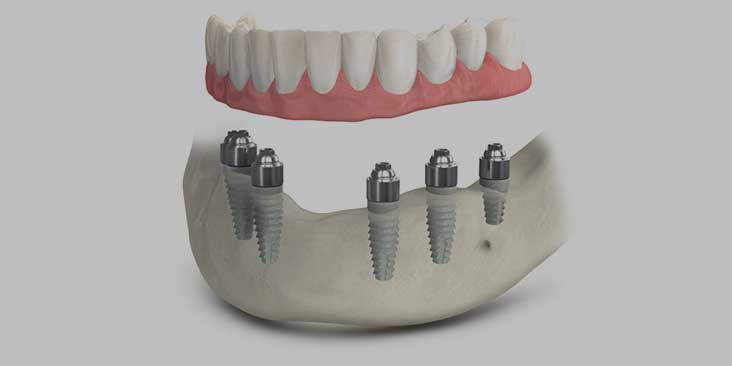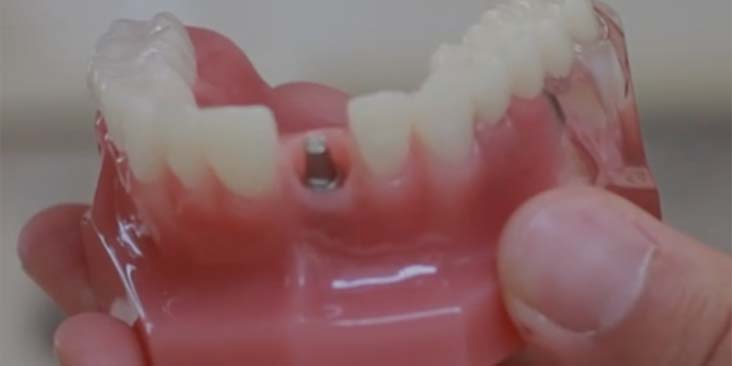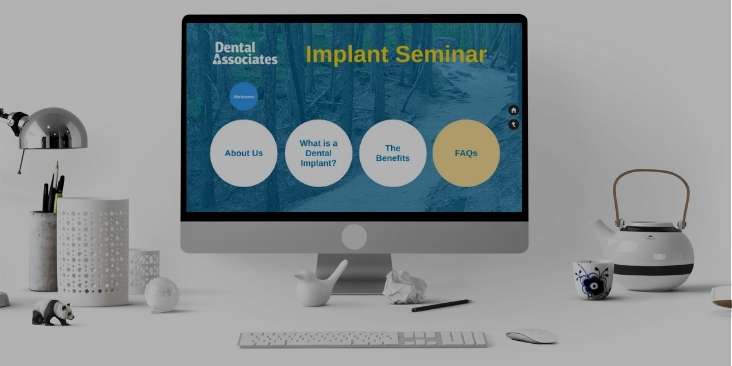Replacing a Bridge with Dental Implants
Improve Your Smile and Overall Health with Dental Implants
In the past, those missing a tooth were limited to two options: live with a gap in their smile or have a dental bridge placed. While having a bridge placed is much better than ignoring the issue altogether, bridges have certain disadvantages.
Disadvantages of a Dental Bridge:
- Can be uncomfortable and often does not look natural
- Is a short-term solution and requires upkeep for years to come, and may even need to be replaced after a number of years
- Can limit the types of foods you can eat
- Makes it more difficult to perform a successful oral hygiene routine, which can lead to bad breath due to food getting stuck underneath the bridge
- Can lead to decay due to increased difficulty brushing and flossing, which can lead to gum disease and periodontal disease
- The placement of a bridge results in severe damage to adjacent teeth. Learn more about this in the next section
Results of a Traditional Tooth-Supported Bridge
When a tooth-supported bridge is used to replace a missing tooth, the adjacent teeth are cut down or ground down into pegs so the bridge has a support system. This process unfortunately destroys natural enamel and tooth structure but is necessary to fit the new cemented bridge in place. Even though a 3-unit tooth-supported bridge can be functional for many years, the compromised teeth (those healthy teeth cut down to support the bridge) frequently develop decay, periodontal bone loss, or will need root canal treatment. This often leads to problems that are more expensive and complicated to treat later.
Because of these issues, dental professionals encourage the use of dental implants to replace a missing tooth instead of a 3-unit bridge. Replacing a dental bridge with dental implants is the solution that will last for years to come.
Advantages of Replacing Your Bridge with Dental Implants
Dental implants are the modern alternative to a bridge. By replacing your bridge with dental implants, you can finally have a permanent solution to your missing teeth.
Watch this video to learn about replacing a bridge with dental implants:
Dental implants are far superior to bridges for numerous reasons:
- A long-term solution. A dental bridge may have a more affordable upfront cost, but it’s not a permanent tooth-replacement option. Often, bridges need to be maintained and even replaced throughout your life, which can be more costly down the road. Dental implants have a 97% success rate, which is significantly higher than any other tooth-replacement option.
- Standard of care. Dental implants are recognized as the “standard of care” today for missing teeth because the jawbone will bond with the titanium implant and provide a strong base for the new crown. The result is a stable and strong replacement that looks, feels, and functions just like natural teeth.
- Ease of care. Since a dental implant functions like a natural tooth, you simply need to care for it as you would for other natural teeth with good daily oral hygiene.
- Eat the foods you want. Dental implants restore natural chewing capacity because of increased stability.
Dental implants are used to attach a permanent bridge to the jaw. These implant-retained bridges are a major improvement in fit and function over traditional bridges or removable dentures and result in an increased biting force. Dental implants form the natural tooth root system needed to strengthen and improve the force of a bite. As a result, dental implant patients can eat a wider variety of foods, which leads to healthy diets, confident smiles, and improved quality of life.
Cost of Replacing a Bridge with Dental Implants
The cost of replacing a bridge with dental implants is determined by your individual case; some cases are more straight forward while others require an extraction and/or bone grafting, which impacts the final cost. Another factor that determines the cost of a dental implant is your insurance coverage. Dental insurance covers implants at different levels, and we may be able to offer additional savings through CarePlus dental insurance.
Overall, it’s important to remember that dental implants are an investment in your future: they will improve your overall oral health, your quality of life, and your confidence for years to come.



